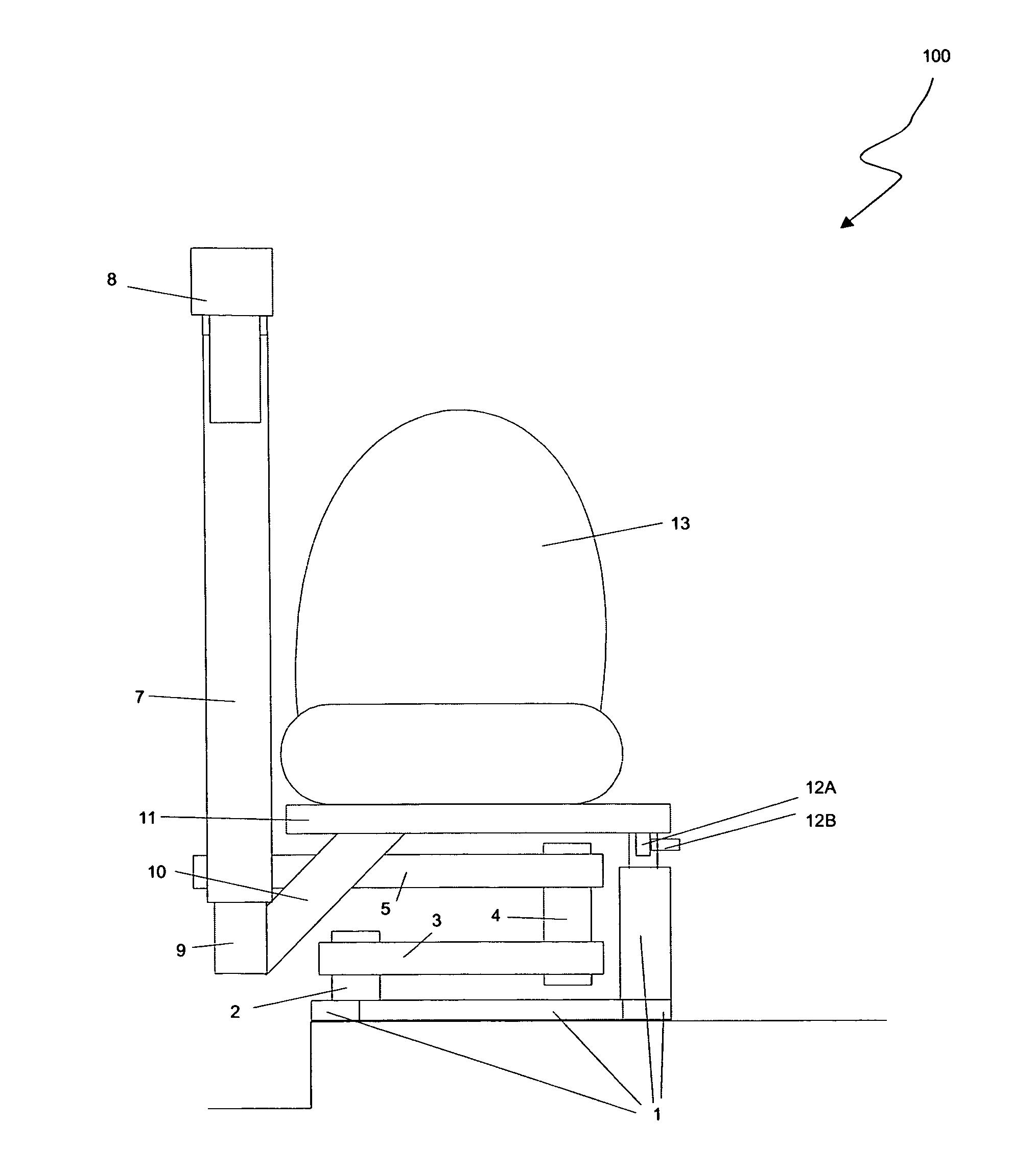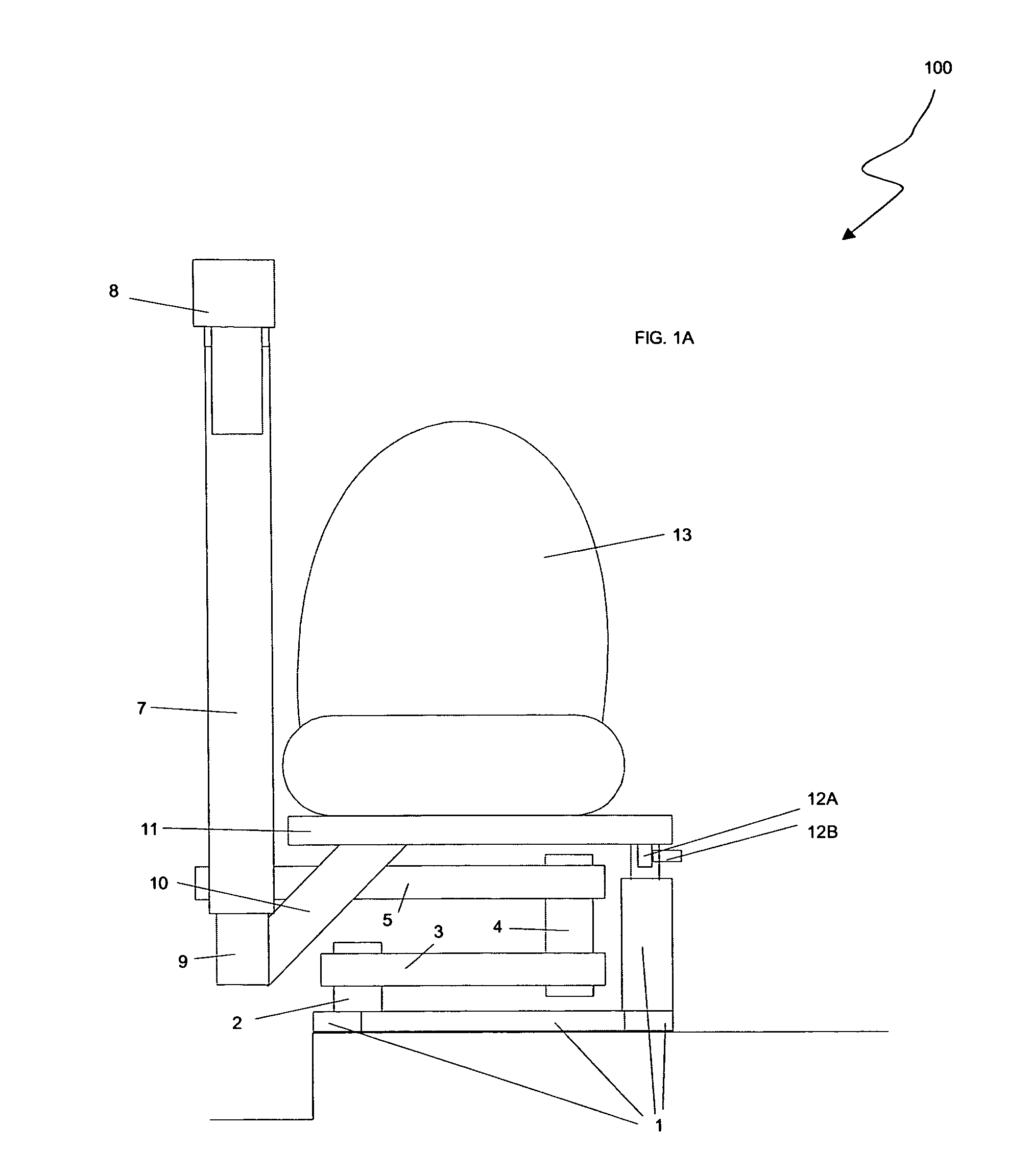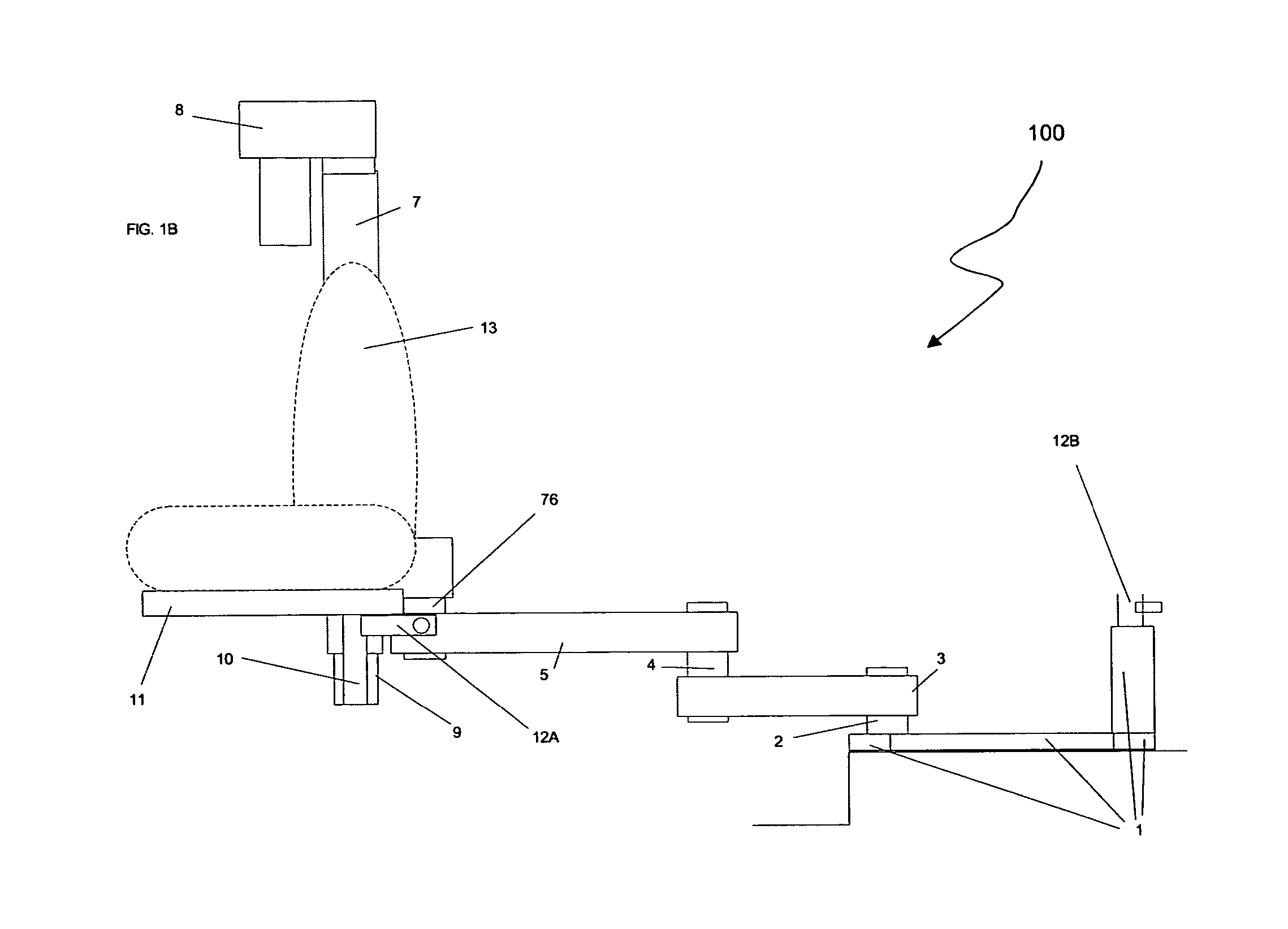Multi-motion lifting and transferring apparatus and method
a technology of lifting and transferring apparatus and method, which is applied in the direction of roofs, transportation items, refuse collection, etc., can solve the problems of limiting the potential mobility of a disabled individual, difficult to lift and transfer such persons to and from their wheelchairs, and difficulty in transferring disabled persons from one location. , to achieve the effect of preventing excessive movement and/or rotation
- Summary
- Abstract
- Description
- Claims
- Application Information
AI Technical Summary
Benefits of technology
Problems solved by technology
Method used
Image
Examples
Embodiment Construction
[0031]Referring to FIGS. 1A-1C, there is shown a multi-motion lifting and transferring apparatus 100 in accordance with an embodiment of the present disclosure in three respective positions. Beginning from the bottom of the apparatus 100 upward, the apparatus 100 includes a base support assembly 1 for securely mounting the apparatus 100 to, for example, the floor of a vehicle or other structure. The apparatus 100 also includes a pivot point 2 allowing horizontal support member 3 to pivot about a substantially vertical axis. Pivot point 4 allows horizontal support member 5 to pivot about a substantially vertical axis. Pivot point 6 allows up / down extension arm outer support sleeve 7 to pivot about a substantially vertical axis. Thus, all support members and the up / down extension arm are allowed to pivot freely throughout a 360 degree rotation unless impaired by vehicle structural elements or interference from other apparatus structures.
[0032]The up / down extension arm outer support sl...
PUM
 Login to View More
Login to View More Abstract
Description
Claims
Application Information
 Login to View More
Login to View More - R&D
- Intellectual Property
- Life Sciences
- Materials
- Tech Scout
- Unparalleled Data Quality
- Higher Quality Content
- 60% Fewer Hallucinations
Browse by: Latest US Patents, China's latest patents, Technical Efficacy Thesaurus, Application Domain, Technology Topic, Popular Technical Reports.
© 2025 PatSnap. All rights reserved.Legal|Privacy policy|Modern Slavery Act Transparency Statement|Sitemap|About US| Contact US: help@patsnap.com



